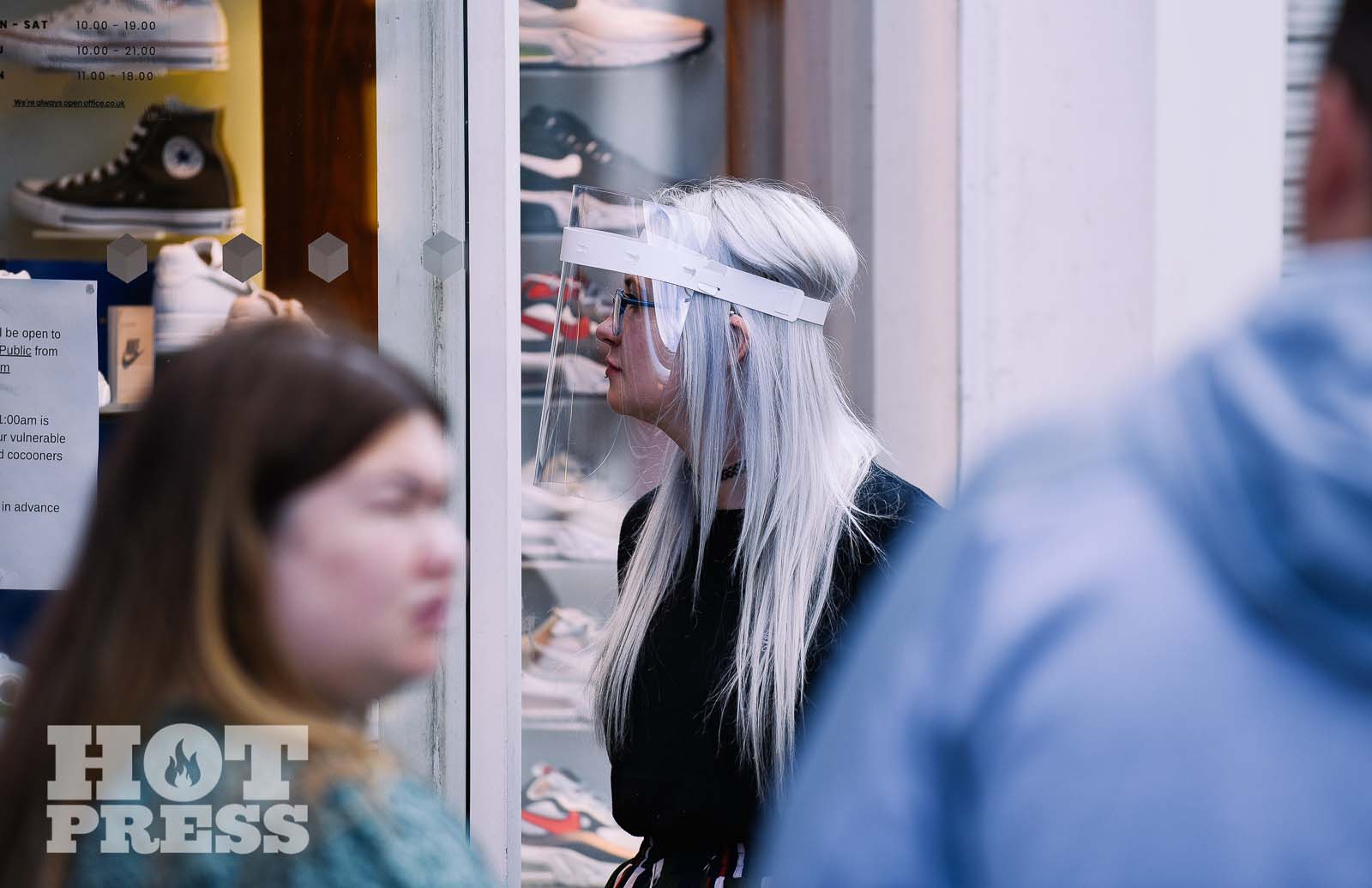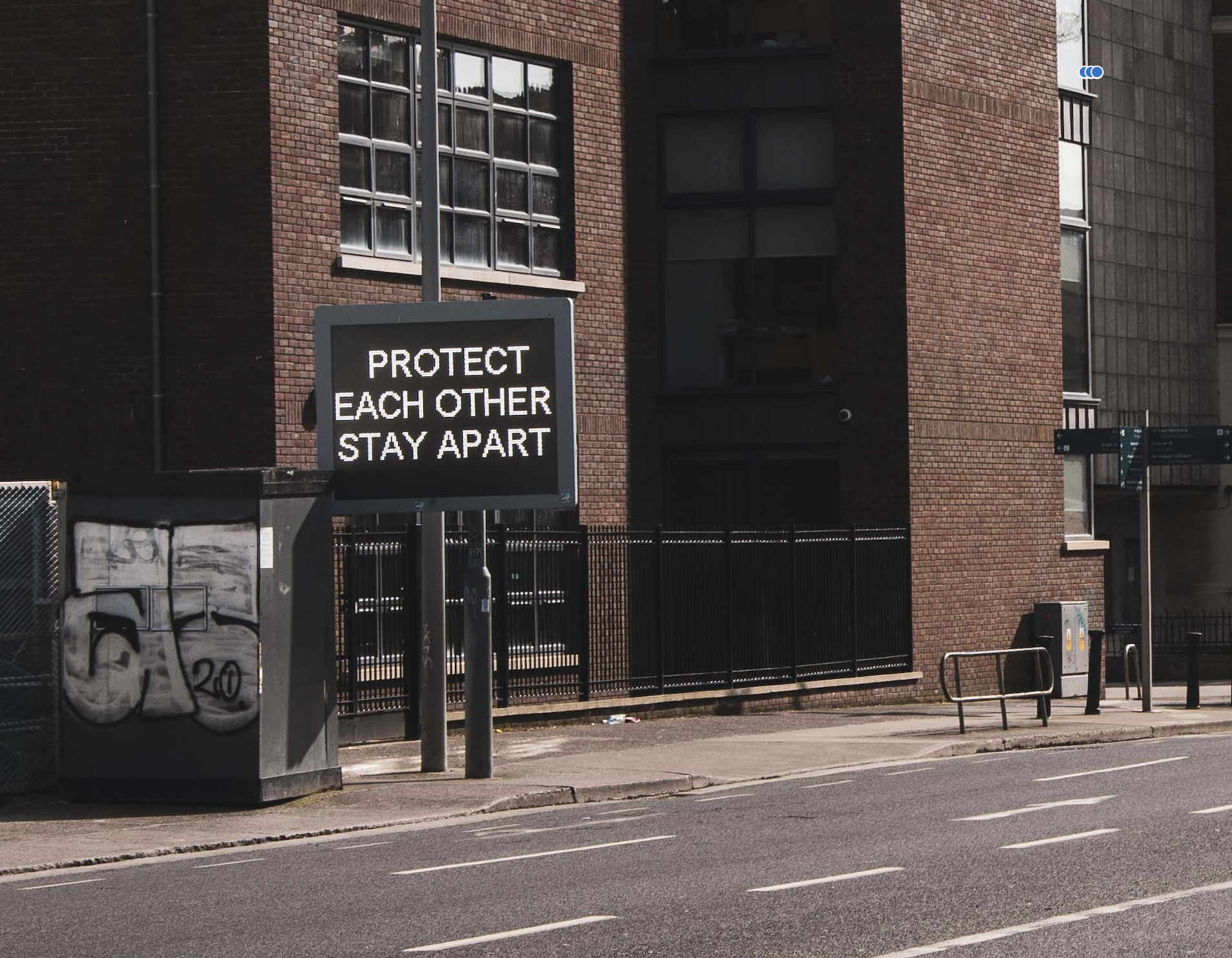- Opinion
- 20 Apr 25

Yes, a review has been promised by the Government. But it must be thorough and objective, and ask the hard questions. The last thing we need is an exercise in clapping ourselves on the back…
Huzzah! Five years after it began, we’re to have our very own inquiry into Covid. But don’t expect the earth to shake. It’s going to be an “evaluation” rather than a deep dive and the outcomes will be “future-focused recommendations.”
That suggests a tight focus on political and health management, to ensure (for good reasons) that it doesn’t get sucked down the litigious wormhole that swallowed previous tribunals and cost taxpayers many millions in fees.
The consensus among politicians, health managers and the media is that Ireland’s management of the pandemic stands up well against other developed countries, and that restrictions and regulations helped limit the number of deaths.

True, many positives can be found. Everyone buckled down. There was social solidarity and purpose.
Advertisement
New commercial models emerged, and new avenues for entertainment, work, food and drink. Sourdough bread was a hit.
The Government delivered key supports for employment that were much better than, for example, those in the UK.
The arts came in from the cold. Imaginative schemes and solid funding from the Government, through the Arts Council and the Department of Arts and Culture, released great energy.
It’s a legacy that endures.
The pharma industry came good too, mobilising and pooling research, sharing knowledge and inventiveness to deliver the vaccines within a year of the outbreak.
It was a remarkable show of responsibility and humanity. We could do with more of it in 2025.
But isn’t the above list a testament to the resilience and civil mindedness of the Irish public rather than the skills and knowledge of public health managers?
Advertisement
If the inquiry simply reiterates the cosy narrative under new headings, and awards NPHET, the HSE and the Department of Health a B+, then things that need to be explored are left to moulder and we learn nothing.
HYSTERIA AND ANGER
There was much more to the pandemic than health service management. What about the rest of us?
Granted, the inquiry will allow for submissions and it’s also “intended” to have “a public consultation element to hear the lived experiences of all society.”
Of which there should be a multitude. It may be necessary to deploy AI to sift through it all.
But without a wide lens view, it’s just whitewash.
Forget the lead actors in the show. They’ve all moved on to other starring roles. It’s the rest of us who matter, those still dealing with the myriad ramifications.
Advertisement
The pandemic permeated everything. And much of it was very upsetting and disturbing.
Like, how can we excuse national leadership and management being surrendered to a junta of unelected technocrats?
These were certainly knowledgeable and well-intentioned people but, inevitably, they were also little versed in the intricacies of democratic and political process and leadership.
Their best-boy-in-class adherence to World Health Organisation strictures led to an over-cautious and inflexible approach.
There was no willingness to change course, even as Covid evolved into meeker but more transmittable variants, nor to maintain a constructive discourse beyond torrents of tweets.
Dissent was taken personally and ruthlessly expunged.
For example, many GPs disagreed with lockdowns, arguing that the pandemic would burn itself out quite quickly and, therefore, that the damage they did would outweigh the benefits.
Advertisement
But when Dr Martin Feeney went public on this, he was forced to resign. You might say he was excommunicated.
Donegal GP and former Minister Jim McDaid also spoke out strongly against lockdowns in September 2020, specifically arguing that under-35s should be excluded from further restrictions.
He warned of a looming mental health crisis and argued for a more open debate.
Knowing what we know now, for example about the mental health legacy, those doctors would be taken much more seriously, wouldn’t they?
But Irish commentators, high on self-importance, went into attack mode, citing “the science”. But science is never static. It’s in constant evolution.
Our commentariat were also far too eager to engage in the global Covid cultural war, with the left cast as the heroes and the right cast as the stupid villains (Trump and bleach! Johnson on a trolley!).
Debate, such as it was, took place online. Inevitably, it was wild, woolly, skewed by myriad ideologies and unhinged beliefs, hysteria and anger, and conspiracy theories, as lockdowns and social isolation folded many in on themselves and turbo-charged fear and loathing.
Advertisement
MORE LIBERAL APPROACH
Away from that ferment, mainstream media should have been better informed. Indeed, the veneration, indeed sanctification, of some members of NPHET that they fostered was completely inappropriate for public servants who were just doing their jobs.
Yet, this infatuation lingers. Hence recurrent nostalgic evocations of the NPHET model, and the “charismatic” boss or czar, to resolve structural issues like housing.
The media also swallowed the numbers they were handed out.
We’re told that Ireland did better than others. But did we? Laissez faire Sweden’s outcomes were much the same as the other, much stricter, Nordic countries. And ours.

A more liberal approach wouldn’t have kept schools closed for so long and might have mitigated the impact on children and young people.
Advertisement
Now, there are sound, academic studies that appear to support this view. They reveal the serious damage caused by being cut off (by lockdowns) from friends, schools and organised activities.
Compared with the pre-Covid era, the number of children who are less ready to start primary school has increased. There’s more school avoidance, more anxiety and less emotional regulation.
There are more speech, language and communication difficulties, behavioural challenges and attention is much more challenged.
Lockdowns compromised the social development of teenagers.
The same goes for higher education and employment. Group activities that are central to the transition to independence, socialisation and self-confidence were cruelly disrupted.
On this, CMO Tony Holohan’s broadside against young people enjoying themselves in Dublin in May 2021 particularly grated.
Hospitals and health services (for example in youth mental health) still haven’t caught up on the backlogs.
Advertisement
So, when you bear all this in mind, did we really do well? Or will we do it differently next time?
THE NEW CLERGY
There are other legacies.
Much of what we now see around us today, at home and away, has roots in the Covid chaos. We were reintroduced to fear and coercion as weapons of mass control.
A virulent anti-vaccine movement grew exponentially. And it’s not too fanciful to argue that lockdowns contributed to the evolution of far right agitation and urban decay.
Gardaí were sent to supervise ordinary people, leaving lots of room for anti-social behaviours. Groups of unsupervised teenagers on bikes rode up and down Dublin’s quays, ambushing Deliveroo riders and honing far right tactics.
Health and well-being evolved into a new faith. Today, being unhealthy is like being a sinner used to be. Health practitioners and managers are the new clergy and hierarchy.
Advertisement
And then there’s Long Covid and the quiet disdain with which those who have it are regarded.
Yeah, there’s much to chew on and the “lessons that need to be learned” are many and complex. The review must look past the numbers.
The big picture matters too.










